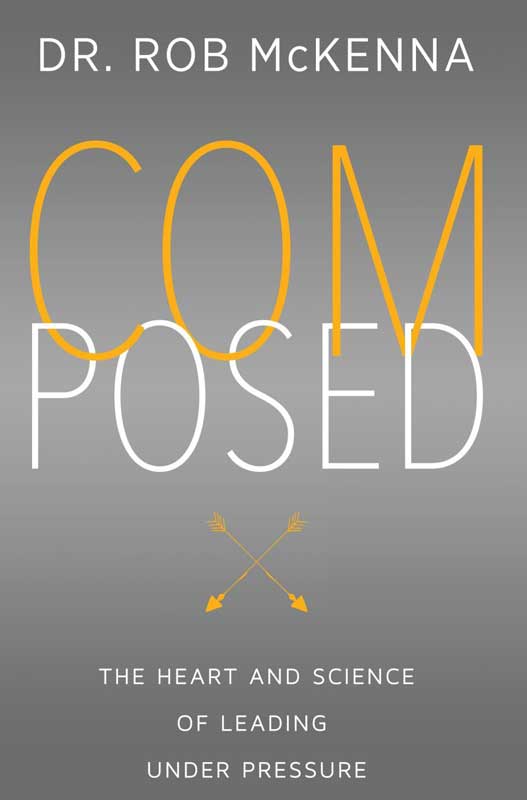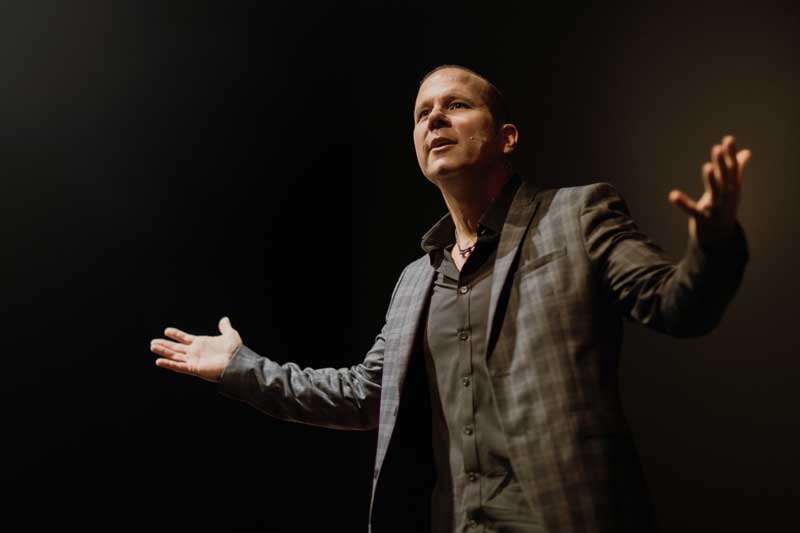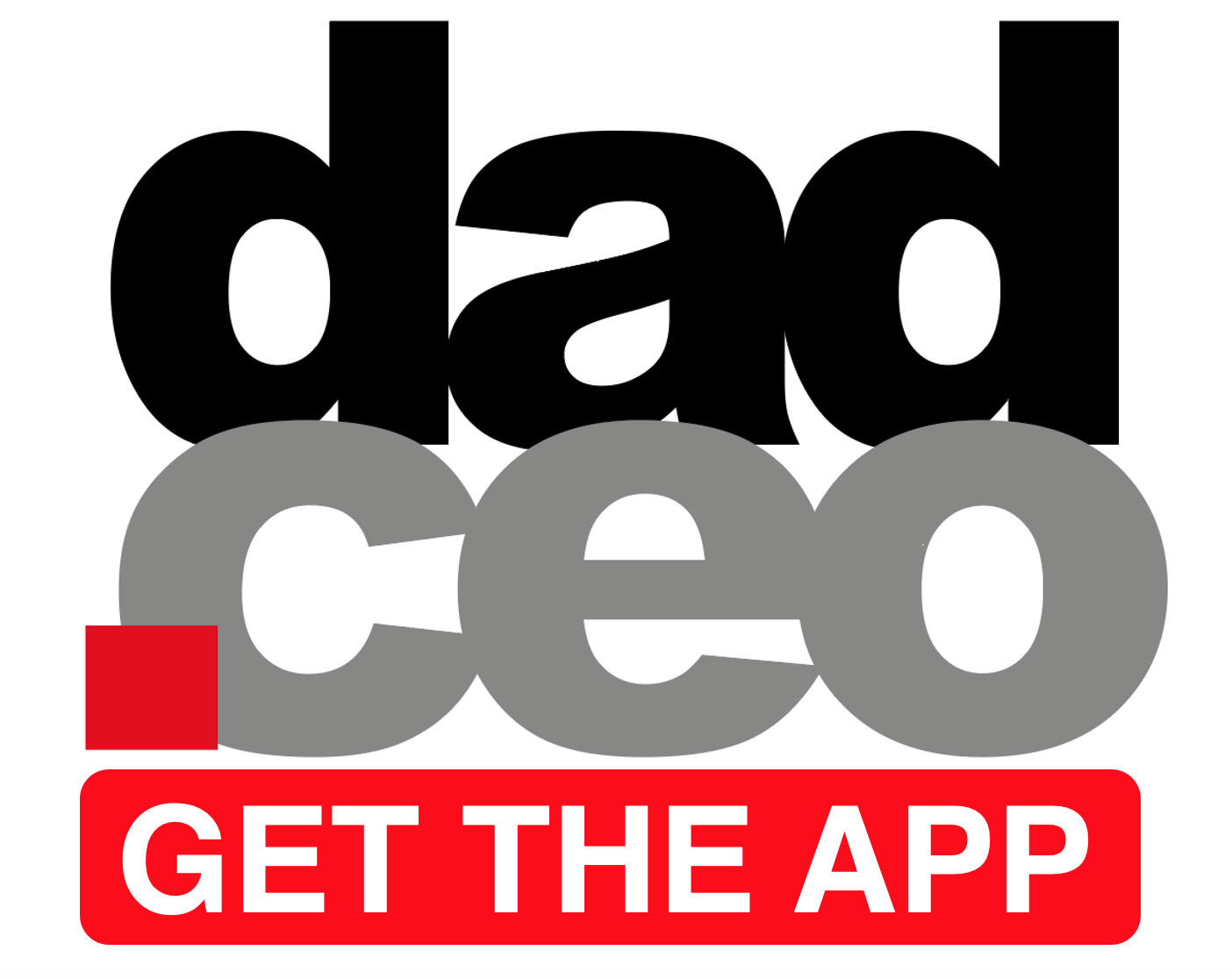If you were more composed under pressure as a parent in the toughest moments, what would that look like? Would you be more patient, more clear, and calmer? Would you be tougher, listen better, and draw clearer boundaries? Would you take things less personally, remain objective, and be less reactive? Most of us can imagine what we would want to be more or less of in those higher pressure parenting moments, but so many of us struggle to improve.
I can’t tell you how many parents I know who feel a sense of guilt or shame about the way they have navigated arguments with their kids, or moments where discipline and love were needed at the same time. The details of the arguments or pressures aren’t as clear to us, but our perceived failures are crystal clear. Becoming better parents is as much about how we show up in those moments and the preparation for them as it is about what we’re actually doing or fighting for in those moments. It’s easy for us to focus on the topic of the pressure, but more importantly, we focus on our own capacity to be the best version of ourselves, no matter the topic. And, as parents who are also leaders in the workplace, it gets more complex. A more whole approach to being better parents means being better leaders across the multiple demanding roles we play in our lives and work.
Almost as soon as my book Composed: The Heart and Science of Leading Under Pressure was released, I was asked to do a keynote on parenting under pressure. More specifically, they wanted me to speak on how to be the best version of ourselves as parents in the moments where it will matter most - moments where our children will push us to our worst habits, moments where we will need to parent together with our significant others, or moments where our children push every button on our dashboard and we will say dumb things and lose the battle for staying clear and composed when it matters most. The wild thing about parenting and talking about our capacity to do it well is that it requires each of us to admit that we aren’t always getting it right and that we are navigating in leadership territory that we haven’t experienced before. Getting better at parenting under pressure starts by seeing the whole picture, identifying our tendencies under pressure, and then getting strategic about leaning into our strengths and understanding our blindspots.
The other challenge is those past generations may have defaulted more easily to parenting a certain way because the cultural context of parenting was more unified and less data-intensive, but today parents are expected to be more self-aware and more connected to the needs of others. It’s not that past generations weren’t connected, but that the importance of parenting well has never been more in the spotlight. In some cases, this emphasis on parenting well has idealized love and care over truth and discipline - missing the reality that parenting well requires both.

The Foundation
While it would be ideal if we could just be better versions of ourselves in a vacuum, it’s not realistic. First off, the multiple roles we play across different parts of our lives impact one another. Accepting that is the first step. While many of us attempt to compartmentalize our life and work, it just doesn’t work that way. Getting strategic regarding our purpose and functioning at work is key. While I won’t be addressing that fully here, the principles I’ll share later are generalizable to your workplace. Being a better parent starts with being a better leader. We don’t fully compartmentalize anything. Being aware that your reactions to your children are impacted by the pressures you are facing at work is an important first step. Second, we rarely parent alone. In other words, being a better parent isn’t just about you and your children, but also about you and the person with whom you are parenting.
"I was blessed to grow up in a home where I knew that my Mom and Dad were the first priority in each others’ lives."
The health of their relationship came before the health of my relationship with them. While it may sound harsh, that level of commitment they had to each other was something I felt, but something that I didn’t realize until later. My parents’ commitment to one another gave me a strong foundation because I knew they weren’t going to let me wiggle between them and divide them. In a strange and wonderful way, it gave me a healthy attachment to my own identity and created calm in me I didn’t fully understand until I became an adult. The lesson for me later was just how important my relationship with my wife was going to be for my parenting and for my boys. It’s not surprising that the community surrounding us is critical to our leading well when it matters most - as parents or as CEOs. We can’t navigate pressure without a strong cast of support. We may think we can do it on our own, but we rarely do it well that way. My point is that whether you are married, divorced, or co-parenting in some capacity, the health of the relationship you have with that person with whom you are parenting is as important as anything. Navigating those relationships is a topic for another article, but the start is to know just how important the community around us is to our ability to parent under pressure. Finally, you don’t have to be perfect, you just have to be committed to improving. Becoming a better parent under pressure is a humbling process because it starts with admitting there are improvements to be made and even some improvements that might hurt a little.
So, what could we improve?
You and Them
In our research with thousands of leaders across multiple cultural and organizational contexts under pressure, we found that almost all of them shared one thing - a desire and necessity to stay true to themselves and connected to others at the same time. It didn’t matter whether they were describing a parenting moment or a business moment, the fundamental question they faced was:
“How do I stay true to my own convictions while staying connected to the convictions of others - even others with whom I may disagree?”
If you’ve ever attempted to navigate an argument with a teenager, you know what I mean. Remaining composed as a parent and leading well involves being clear while also being connected to the needs of the child - even the disobedient or belligerent child. It is these moments that require the most composure, and these moments that challenge us on every level.
While the details of these parenting moments are important, the most critical thing to understand is your fundamental emotional tendency under pressure. For some of us, the tendency will be to keep the peace and to please others. For others, the tendency will be to speak the truth and walk over the opinions of others. What we found was that every leader had an emotional default - to be overly convicted or overly connected. Overly convicted parents struggle to listen and overly connected leaders struggle to be clear. As I suggest in my book, the place to start is to understand your emotional default. Understanding your tendency to either keep the peace or to speak the truth is the beginning. Once you are aware of that tendency, you can begin to work on specific strategies for navigating high-pressure parenting moments.
Parenting on Purpose and Parenting toward Potential
Once we understood that leaders have default tendencies under pressure, we got really interested in the specific strategies that enabled leaders to remain clear and connected at the same time. Imagine being able to remain calm, clear, and connected in your next high-pressure parenting moment. What would that look like and what can I do to get there?
The two most important factors were a strong sense of purpose and a high focus on potential. As parents, the same is true. Knowing why you are a parent and defining that clearly is absolutely critical. While we spend a lot of energy thinking about the specifics of the different parenting situations we face, the most powerful factor is our sense of purpose - our reason for being the parent of that specific child. If I know why I am my son’s dad, it will have a transformational impact on my capacity to stay connected to him and clear about my own convictions when it matters most. My temptation will be to focus on the situation, but the greatest influencer will be my sense of purpose...my transcendent why. In addition to a sense of purpose, we also found that a focus on potential was critical. Thinking about positive potential outcomes in the face of barriers was key. While everything inside us may want to identify barriers and brokenness, focusing on positive potential outcomes of the high-pressure moments has a profound impact on our ability to parent well under pressure. While it may sound idealistic to imagine seeing the potential in a moment where your daughter or son is saying horrible things about you, seeing the possibility that this is a natural differentiating process for a child in certain developmental stages can make a difference.
While parenting will never be easy (and any parent who says it’s easy is likely hiding something), there are steps we can take to become better at it when the pressure is on. Building a community of co-parenting support, understanding our defaults, and clarifying our sense of parenting purpose, and seeing potential are the starts. With a little help and a little grace, we will all navigate the wonderful parenting gauntlet just a little bit better.
ABOUT DR. ROB MCKENNA

Recently named among the top 30 most influential I-O Psychologists and featured in Forbes, Dr. Rob McKenna is the founder of WiLD Leaders, Inc., creator of the WiLD Toolkit, and Chair of Industrial-Organizational Psychology at Seattle Pacific University. His research and coaching with leaders across corporate, not-for-profit, and university settings have given him insight into the real and gritty experience of leaders. His clients have included the Boeing Company, Microsoft, Heineken, Foster Farms, the United Way, Alaska Airlines, and Children’s Hospital. He is the author of numerous articles and chapters on leadership character, calling, effectiveness, and leadership under pressure. His latest book, Composed: The Heart and Science of Leading Under Pressure, focuses on the specific strategies leaders can use to stay true to themselves and connected to others when it matters most.











